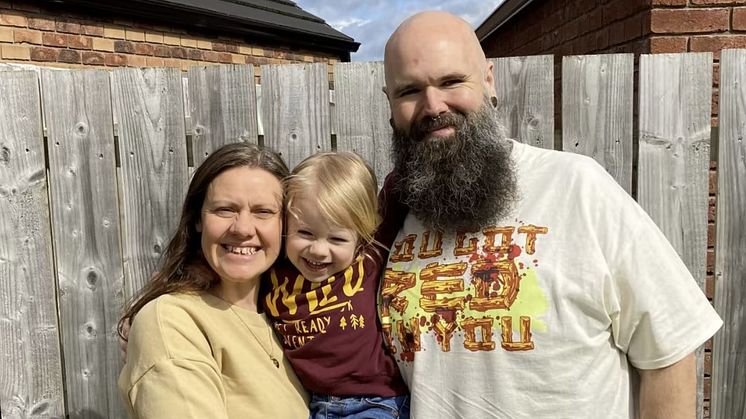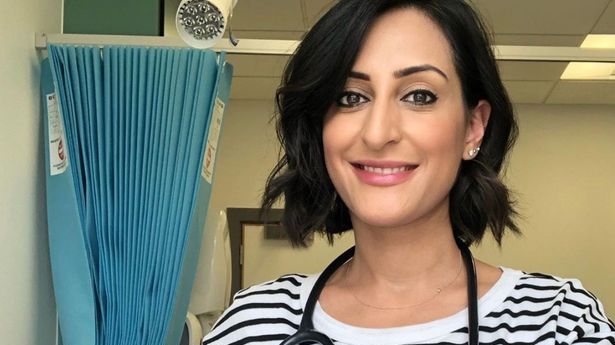
Press release -
County Down stroke survivor urges people to check for ‘silent condition’ which can cause serious strokes
County Down stroke survivor urges people to check for ‘silent condition’ which can cause serious strokes
A stroke survivor from County Down is backing a charity’s plea for people to carry out a simple test on themselves in case they have a ‘silent condition’ which could cause a serious stroke.
Paul Mclean had atrial fibrillation or ‘AF’, where the heart beats with an irregular rhythm. When this happens, the heart won’t empty all of the blood out of its chambers with every beat and the leftover blood can form clots which travel to the brain, blocking off blood flow and causing a stroke.
The Stroke Association is urging people to mark Stroke Prevention Day on Thursday, 12 January, by checking their own pulse to make sure it’s not irregular.
Paul, a former teacher from Magheralin, had a stroke in June 2016 when he was aged 40. His stroke had a number of known risk factors – including dilated cardiomyopathy, high blood pressure and atrial fibrillation.
Paul’s stroke occurred on a Saturday morning while he was at home with his wife Suzanne. He first began to notice something was wrong when he couldn’t lift his right hand. Paul and his wife acted FAST and he was able to have the lifesaving procedure thrombectomy where a clot is removed from a blood vessel in the brain.
“I was really lucky that a doctor was available on the weekend and just happened to be at the hospital that day to do the thrombectomy. I was lucky that things happened when they did but not everyone is and that is why it is so important to reduce the risk of stroke.”
“It is so important that people check for atrial fibrillation. It is a simple test that could save your life. I have spoken to so many stroke survivors who never knew they had AF until after they had a stroke. I also knew when I was feeling faint I needed to make sure I looked after myself and get checked. Lots of people say they felt the same but they had no idea it was a sign of AF.”
“I firmly believe there is a reason I survived my stroke. There’s a reason the specialist doctor was there that Saturday and saved my life. I’m determined to live each day to the full and I want to raise awareness of stroke and help prevent others who have AF from having a stroke so please check your heart beat and if there is anything you think isn’t right, get it checked out as it could help prevent you from having a stroke.”
A survey by the Stroke Association to mark Stroke Prevention Day on Thursday 12 January reveals that almost three in four people (73%) did not know that AF is a major cause of stroke.
The charity has a video guide on its website at www.stroke.org.uk/spd23 showing people how they can check their own pulse on their wrist or neck.
Alasdair O’Hara, associate director for Stroke Association in Northern Ireland, said: “It's worrying that so few people know that a little thing like how your heart beats can lead to a massive stroke.
“AF often has no symptoms and a stroke can strike without warning. Don’t let the first sign of your AF be a sudden and life-changing stroke. With early diagnosis and effective management of AF, your risk of a stroke dramatically decreases so it’s vital to get checked regularly.
“It’s really easy to check your own pulse and our research told us that most people are able to. Feel for your pulse on your wrist or neck to make sure it has a regular beat. If you suspect you have an irregular pulse, contact your GP Practice.”
Topics
Categories
- Stroke strikes every five minutes in the UK and it changes lives in an instant.
- The Stroke Association is a charity working across the UK to support people to rebuild their lives after stroke. We believe that everyone deserves to live the best life they can after stroke. From local support services and groups, to online information and support, anyone affected by stroke can visit stroke.org.uk or call our dedicated Stroke Helpline on 0303 3033 100 to find out about support available locally.
- Our specialist support, research and campaigning are only possible with the courage and determination of the stroke community and the generosity of our supporters. With more donations and support, we can help rebuild even more lives.
- You can follow us on Twitter, Facebook and Instagram.



